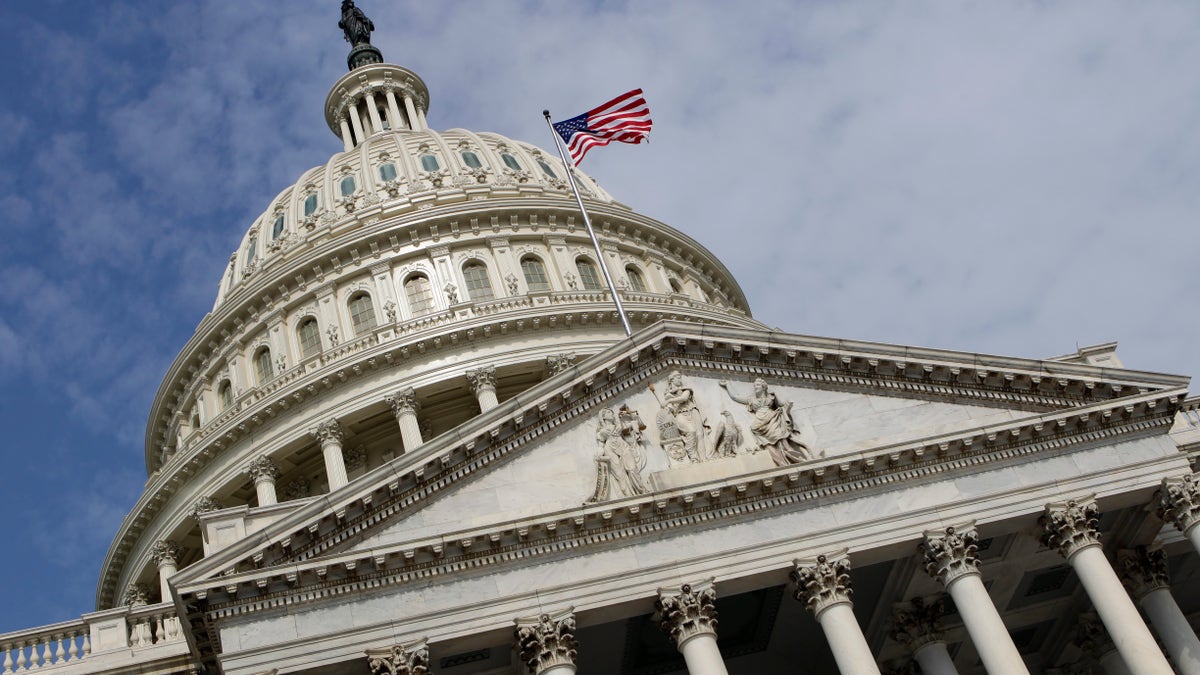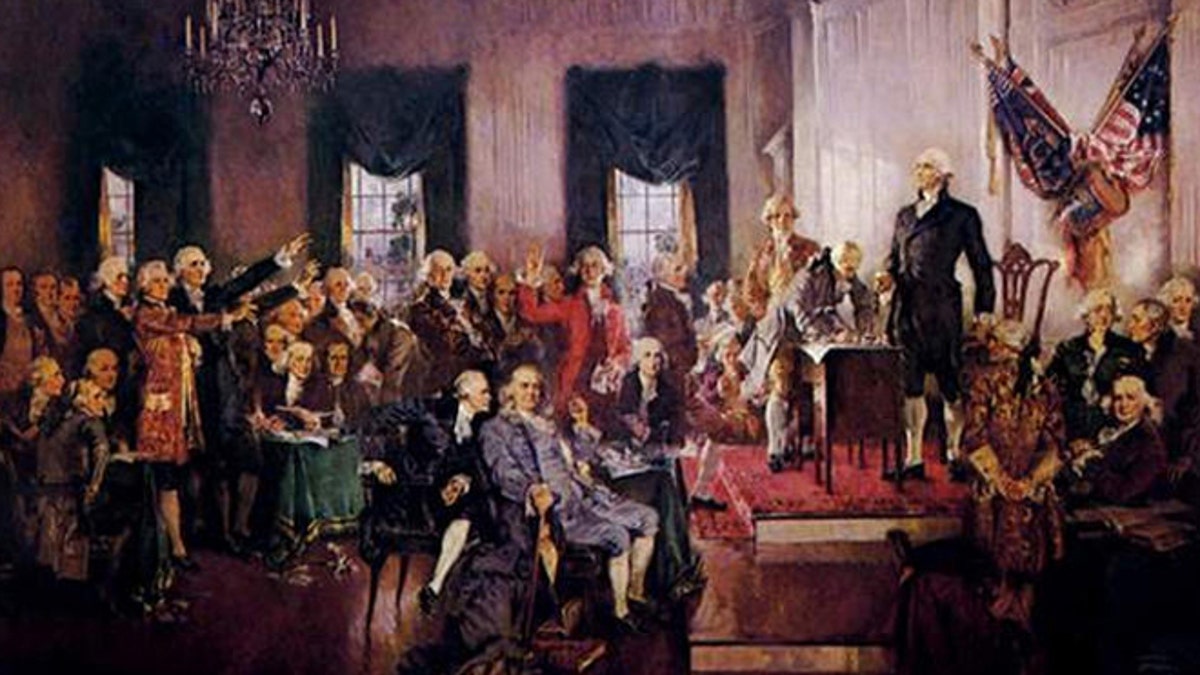
The Capitol Dome is seen on Capitol Hill in Washington July 28, 2011. (AP)
As frontrunners in the Republican presidential primary campaign, Ted Cruz, Donald Trump, and Marco Rubio will have the opportunity to explain how they will reignite the economy and protect our security while remaining true to constitutional principles. One area where they should agree is on blocking the growth of the federal government, designed by the Founders to exercise only limited, enumerated powers.
It will not be simple to reverse the century-long evolution toward the large and unaccountable form of government that we call the administrative state. President Woodrow Wilson established its broad outlines to introduce more expertise and expel politics from lawmaking.
To Wilson, the lack of political accountability in agencies was a positive feature of the administrative state, not a fault. Today we are left with an ever-growing sprawl of federal agencies, often with unclear and overlapping purposes, and increasingly a law unto themselves.
According to the federal government itself, Washington, D.C. does not even have an authoritative list of all of its agencies. Nevertheless, they continue to put out thousands of new regulations a year, culminating in an administrative code that is 80,000 pages long with even more informal guidelines – far longer than the laws passed by Congress.
As it impoverished our liberties, presidents needed the help of the other branches of government to extend bureaucracy’s reach. The administrative state operates today with the assent of Congress and the passive acquiescence of the judiciary.
The administrative state violates the Constitution by transferring the power to legislate from Congress to agencies, which enact rules, enforce them, and then even adjudicate the cases that arise under them. The Constitution actually requires a separation of powers between the three branches, because our Founders rightly feared the consolidation of too much power in one person or entity.
As James Madison warned: “The accumulation of all powers, legislative, executive, and judiciary, in the same hands, whether of one, a few, or many, and whether hereditary, self-appointed, or elective, may justly be pronounced the very definition of tyranny.”

Scene at the Signing of the United States Constitution,' a 1940 painting by Howard Chandler Christy (AP)
The Constitution grants no permission for the transfer of legislative power from Congress to another branch of government. While government agencies must have some discretion when carrying out Congress’s laws, the Framers never intended the president to override Congress’s choices with selective enforcement and unreasonable readings of statutes.
Sadly, the courts have stood by while the administrative state has grabbed more and more power. They read out of existence the non-delegation doctrine, which prohibits precisely the transfer of power from Congress to the agencies that has now become so routine. The courts compound their error by deferring to agency decisions, giving unaccountable bureaucrats wide latitude in their decision making.
Proof that agencies wield great and unaccountable power can be found in the Internal Revenue Service scandal, which targeted and then delayed applications for tax exempt status from hundreds of right-of-center groups hoping to become involved in the last election cycle.
Redefining and repeatedly delaying the employer mandate under ObamaCare, the Treasury Department exercised authority it did not possess. In settling non-adversarial lawsuits with friendly environmental groups, the Environmental Protection Agency expands its authority, with the imprimatur of the judiciary.
Our new book, "Liberty’s Nemesis," documents the wild growth of this welfare state and offers solutions. With 35 contributors who have worked at the highest levels of all branches of government, it covers an enormous amount of territory.
A determined president acting alone can only temporarily rein in the bureaucracy. He would have to surrender enormous policy-making power back to Congress, exercise great vigilance in policing subordinates, and resist the temptation to solve all of society’s ills. And the gains might last only as long as his presidency.
A lasting solution requires the cooperation of all three government branches. Congress must stop giving up its lawmaking authority to the agencies, and must use its power of the purse to exercise effective oversight. The courts must be serious about blocking the delegation of legislative authority, and must be willing to scrutinize the legality and constitutionality of challenged agency actions. Presidents must faithfully execute the laws, rather than selectively enforce them to help political allies and punish opponents.
It has taken more than 200 years for the government to grow to its current size, and it will not be reined in without concerted effort.
The alternative is the further consolidation of power in the administrative state and the continued slide toward Madison’s feared “definition of tyranny.”
